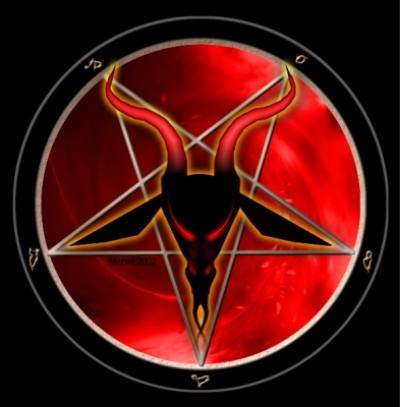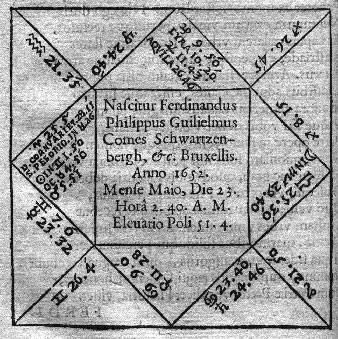
Unexplained Mysteries of Influence of Occult
 The Occult. The term sends a chill down the spine – for some. This is the world of evil and mystery, where sinister magicians prowl the borders between the physical and ethereal. Where the subject causes real fear, it is sanitised for western feeling, and images of Harry Potter fill our heads. Yet in reality the Occult has been essential to the life we live today. ITS BIRTH The Occult was actually born following the life of Christ. Up until this time, most religions had been pagan, and even the few non-pagan religions maintained a spiritual tradition of mysticism. Survivals of this are the Christian tradition of Gnosticism and the Jewish Cabala. Both employing ritual and meditation designed to enter a more spiritual world in order to understand and manipulate the physical world, they enshrine what was to become Occult. The death and Resurrection of Christ was, infact, a deeply Occult event. What Christ symbolised was that man could descend to a God-head, manipulate the physical world, and return. This was the essence of Gnosticism of the time. But in order for Christ to be different, unique, He had to become the only person who could do this. Hence, Gnosticism had to be wiped out - ruthlessly - and this natural Occult power branded as evil. This was the genesis of Occultism as evil. And it has remained so ever since - even though throughout Western intellectual life the Occult has been at the cutting edge of the knowledge systems and societies we have created. THE HERMETICA Other than Gnosticism and the Cabala, several other Occult sciences were to impede on western consciousness. These included Astrology, Alchemy, and a system of knowledge known as the Hermetica. The Hermetica itself is an ancient treatise thought to have been written by the mythical magician Hermes Trismegistos. Most likely an amalgamation of the Egyptian god Thoth and Greek messenger of the gods, Hermes, the treatise is an identification of the existence of ‘prime matter’ as the roots of the physical universe, and the work deals in the relationship and sympathy between man and the universe. The Greek philosopher Plato produced a system of forms which seem to be based on the Hermetica. To him, above the physical world was a world of ideas, where everything in the physical world was taken from. Here, everything had a physical form and an ethereal, other-worldly form, including knowledge and new inventions. The central philosopher of early Christianity, Augustine of Hippo, was a Platonist at heart, and his idea of God became based on Plato’s forms. Arguably the entire Christian system was therefore based on Occult leanings. ASTROLOGY Plato’s pupil Aristotle was also intrigued by such ideas as the Hermetica. He grew up in a world where future Occult symbolism was all around. Astrology, for instance, had been around for centuries as a means of reading the positions of the planets in order to offer guidance to kings. It was a specifically Greek notion that Astrology should be available to everyone. This was the birth of the horoscope. But in birthing the horoscope, the ancient Greeks said something else. For in taking this mighty magic away from simply assisting kings, this popularisation of Astrology was fundamental to the birth of the idea of democracy and individuality. Occultism can here be seen as important to the life of the ancient Greeks. Aristotle reflected this by using many of the principles of Astrology to devise Cosmology. Later, the Greek physicist Ptolomy was to rationalise our knowledge of the universe in his Astronomy. Yet it was fuelled by his knowledge, also, of Astrology. Indeed, Astrology was the father of astronomy and our knowledge of the universe would not have existed without it. Aristotle also used the principles of Alchemy for philosophy and science. For, like Alchemy, Aristotle was interested in discovering ‘prime matter’. His theory was very much based on Alchemical practices. So we can clearly see how important Occultism was to science and democracy. WESTERN OCCULT TRADITION As Christendom arose in Europe, the Occult was slowly to be seen as evil, and to be banished. Yet Astrology was taught in universities well into the l3th century. The idea of Black Magic itself was invented by priests, who tried to use reverse Christian symbolism and ritual to affect bishops to enhance their chances of promotion. Thought to have been created by evil occultists, Black magic was, infact, a Christian idea. Aided by the witchhunts, Christendom finally seemed to have banished the Occult from their knowledge systems. But as soon as the Medieval world began to crack in the Renaissance, Occultism rose once more to assist man’s knowledge. Principle to this was the 15th century Italian scholar Marsilio Ficino - an intellectual who is hardly known today because he is too much of an embarassment to modern scholars. One of the first translators of Plato and other Greek philosophers, he became head of the Platonic Academy in Florence. His translations included the Hermetic texts. Around his work was the idea of a form of planet magic where the sympathies of the universe had an effect on the betterment of man.  This form of universal occult love was essential to fuelling the intellectuals of his day. We know of this ground breaking scholarly concept today only as platonic love. Yet when expressing a platonic relationship, you are infact dabbling in Occultism at the birth of its western ascendancy. Another major Occultist of the period was the German physician Cornelius Agrippa. Widely travelled, he was eventually banished for his ideas. Amalgamating the Cabala into western Occultism, he was fascinated with the relationship between mind and the physical world. Reading his treatises today, we find we are reading the work of the first academic psychiatrist. Another major Renaissance figure was almost certainly an Occultist. This was Leonardo da Vinci, who’s paintings, including the Last Supper, are arguably full of occult symbolism. The latest theories concerning the Holy Shroud are that it was a forgery by Leonardo, the image actually being his face atop a cadaver, in order for him to secretly laugh at the Christian world. The art we love seems, therefore, to be essentially Occult. And it was the same with architecture. As later Occult scholars began to look at the symbolism of many of Europe’s Medieval Cathedrals, it became obvious that Occult ideas of the universe were built into them. Some, such as Chartres, seem to be alchemical texts in stone. ALCHEMY Alchemy is one of the most puzzling of Occult sciences. Based on the idea of the Philosopher’s Stone, it argues that the world can be manipulated by discovering the stone, which exists throughout the universe, and if properly treated can change one element into another, such as lead into gold. The most likely answer to alchemy on this level is that it is a physical discipline aimed at preparing the mind for transformation, hence, hinting at basic meditative practices. But so sure were many scholars that Alchemy was a reality that they built secret laboratories to experiment. Great academics who attempted this alchemical transformation included Paracelsus, who became the father of modern chemistry. Indeed, none of the basics of chemistry would have been achieved without this occult practice. Yet intriguingly, the practice was later proved to hold a degree of truth. When modern physicists split the atom they transmute one element into another, just as Alchemy said it could be done. Further, the identification of the subatomic particle is close, philosophically, to the Hermetic prime matter. We can argue that modern physics was presaged at the dawn of history - by Occultists. Science does, of course, mock this Occult inheritance. But they can only do so by ignoring the most important part of scientific history. The instigator of the scientific revolution was Isaac Newton, and his discovery of gravity, as well as work on calculus and optics. Yet the reality of Newton was not of some cold, materialist scientist. Newton was infact a deep Occultist who secretly carried out alchemical experiments and wrote over a million words of alchemical text. It seems that gravity and other ‘physical’ theories were simply side-issues to his ultimate goal of discovering the spiritual secrets of the universe. SACRED GEOMETRY The word occult actually means ‘hidden.’ And in this, Occultism is exposed as the discovery and manipulation of unseen forces. Science is reluctant to see the similarity, but this is exactly what they do, science being the discovery of unseen forces and, through technology, the manipulation of those forces. And without the ideas behind the work of early Occultists, science would never have arrived to mock Occultism and Magic. But the world owes Occultism an even greater debt of gratitude than this. We noted earlier that the Medieval Cathedrals were full of Occult symbolism. This was down to the almost magical ideals of the ancient craftsmen. Ever since the ancient Egyptians built the pyramids, magic and architecture have gone hand in hand in sacred geometry. The practice involves expressing the Divine in stone. Every church follows this occult practice, the church shaped like Christ on the Cross. Indeed, when you enter a church you do not enter a building, but the actual symbolic body of Christ. These early builders had their own guilds, but also their own Occult organisation. This became the inspiration for Freemasonry. Devised around the spirituality of Brotherhood - a form of platonic love - Freemasons could belong to any religion, but above all deities was the Great Architect of the Universe. When the United States of America was founded, most of the founding Fathers were Freemasons, and the Constitution itself can be seen to be very much based on the Brotherhood found in Freemasonry. Hence, we can argue that America itself was founded on Occult ideals. IT GETS EVERYWHERE Western history has been a history of Occult influence, from the Resurrection of Christ to the modern day. This simple fact rests uneasily with the idea that we are material and rational societies. It is too much to bear for our academics and establishment to accept this inheritance. Hence, they have always told an alternative history, denying, until recently, such factors as Newton’s Occult biography. This is mainly so because at the heart of Occultism is passion and a denial of authority. This is no good for a social authority, and in this sense the Occult IS counter to the good. You see, we are all, at heart, pagan. This is so because paganism has always been an ideal based around the individual living in an enigmatic world. Paganism and the Occult actually birthed, millenia ago, the idea of individuality. Authoritarian states therefore have to put down Occult reality in order to create a stable society. But even then, if we take Christendom, whilst the establishment was Christian, the people remained essentially pagan, as the need for the witchhunts testifies. Yet in the modern world, a unique con has been achieved to seem to empower the individual, but actually bases our ethic on consumerism. The modern consumer world is the first authoritarian entity to have the genius to glorify this paganism, but by another name. The modern world calls it liberalism. And it says you can be what you want to be as long as you are not criminal. This does, of course, free you from obligation to others and turns you into a good little consumer. Yet at the heart of paganism is a simple rule, immortalised in what has become known as the Wiccan Rede: Do as you will, but hurt none. The notion is identical to liberalism. We are all witches now. © Anthony North, November 2007 Article Link Source : Website Return Home : For more articles ... |
More can be addded on request. Direct your requests at vinit@theunexplainedmysteries.com